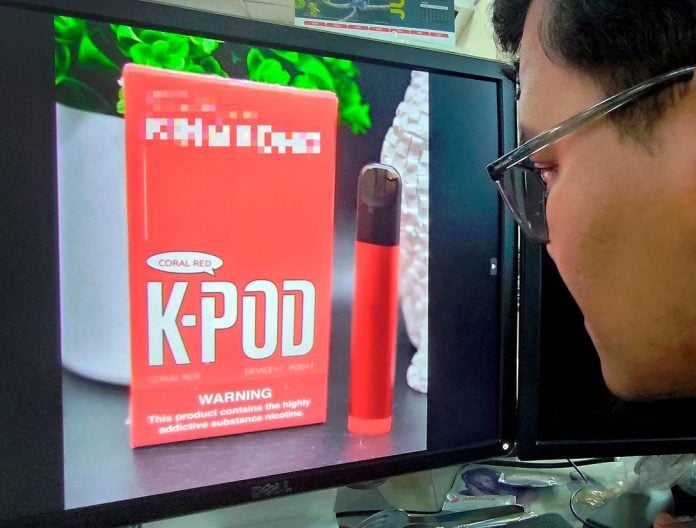GEORGE TOWN: As calls to ban tampered vape products such as K-Pod grow louder, experts have warned that an outright ban may backfire, exacerbating the problem rather than solving it.
They say addressing the issue requires political will, inter-agency coordination, psychological insight and, above all, compassion.
Universiti Sains Malaysia criminologist Datuk Dr P. Sundramoorthy described the rise of adulterated vapes as an escalation in Malaysia’s struggle against evolving forms of substance abuse.
“What makes these products especially dangerous is not just their chemical composition but their design. They are discreet, odourless and flavoured.
“Tampered vape liquids have essentially become stealthy, socially accepted delivery systems for synthetic drugs. And they are alarmingly accessible to school and college students.”
However, he cautioned that a blanket ban could worsen the situation by pushing the market further underground, which would make adulterated products even harder to trace and control.
“It could also penalise legitimate users who rely on vaping as a harm-reduction tool,” he said.
He warned that a ban may trigger backlash from young voters and small-business owners, who form part of the country’s growing vape retail sector.
Sundramoorthy called instead for multi-layered regulation and the creation of a centralised regulatory body to oversee vape policy, including mandatory chemical testing of vape liquids, particularly flavoured and imported variants, before they are approved for sale.
He proposed tougher penalties for vendors caught selling tampered products near schools or youth-centric areas.
He said despite recent regulatory changes, Malaysia’s legal framework remains inadequate to handle the vape industry’s growing complexity.
“There is no comprehensive ban or regulation on vape liquids, particularly those imported or sold online. Enforcement at the point of sale is sporadic and customs control over vape paraphernalia remains porous.”
He added that forensic labs are underequipped and understaffed, making rapid testing during school raids or medical emergencies almost impossible.
“This is a textbook case of enforcement mechanisms struggling to keep pace with innovation in substance abuse. Without a centralised regulatory body, efforts are fragmented. The result is a policy vacuum that criminals exploit with ease,” he said.
Sundramoorthy also said the issue highlights broader systemic failures, such as porous borders, weak inter-agency coordination, inconsistent enforcement, institutional corruption and outdated educational messaging, all of which undermine national resilience.
He called for the formation of a national task force comprising police, the Health Ministry, the Customs Department, forensic experts and educators to lead enforcement while also crafting culturally relevant awareness campaigns that target youth, parents and teachers.
Malaysian Psychological Association president Assoc Prof Dr Shazli Ezzat Ghazali stressed that the solution must address the emotional and psychological state of Malaysian youth.
“The answer is not merely a lack of information, but rather deeper psychological factors. Vape use is sometimes not just experimentation. It could become a defensive mechanism for coping, an escape from academic pressure, family conflict, social anxiety or low self-worth,” he said.
He explained that adolescence is a time of intense peer influence and identity confusion, and vaping is often used as a tool to “join the gang” or appear “cool”.
“Many teens are in an identity crisis and those unable to find themselves experience role confusion,” he said.
He noted that the adolescent brain, particularly the prefrontal cortex, which governs impulse control and risk evaluation, is not yet fully developed, making teens more likely to follow trends without grasping long-term consequences.
He added that colourful packaging and sweet flavours make vaping seem fun and harmless, distancing it from the health risks that are traditionally associated with cigarettes.
“Pop culture and social media indirectly normalise the use of illicit substances, making it seem bold, free and attractive.”
Shazli said products such as K-Pod that offer a quick euphoric high appeal especially to youths dealing with stress, depression or emotional instability.
A May report by the United Nations Office on Drugs and Crime revealed the detection of etomidate, a hypnotic anaesthetic agent, in e-liquids used in vape devices. Misuse of this substance has been linked to symptoms such as intoxication, hand tremors, anxiety, panic and confusion.








